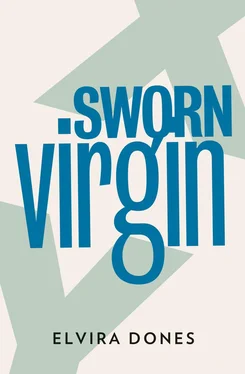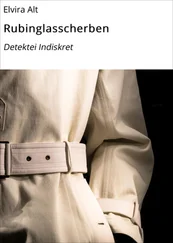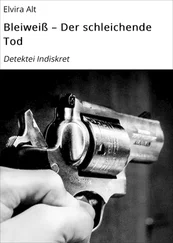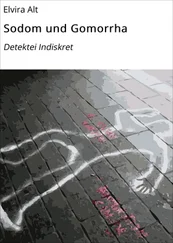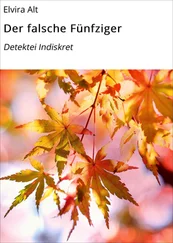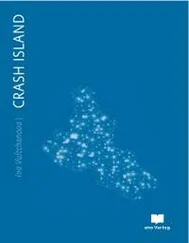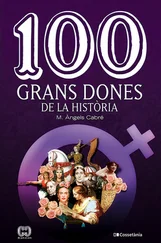‘I think you need to help me with stuff like body cream and all that. My skin is really dry.’
Lila asks her if, by any chance, she’s asking her to come over right away. Hana pauses. Then she confesses it would be great if Lila could sleep at her place, just tonight.
‘I’m coming. I’ll throw some clothes on and be right on over.’
‘Thanks, Lila.’
They’ve turned the lights off. They both stare at the ceiling without saying a word. The bed is a queen size, not really big enough for two people, especially with one of them Lila’s size. They bought it in a Salvation Army store. It creaks even when you don’t shift your weight. Hana has christened it ‘Jim.’ In Albanian the word for ‘bed’ is masculine; in English things aren’t masculine or feminine. So she calls this bed ‘Jim.’ Who knows whom he’s arguing with to make such a racket. Maybe he remembers when he was still in the forest and couples used to lean on him to make love. He must miss the forest.
Hana enjoys giving names to things in the house. Not everything, just the big pieces of furniture. She started this game with Jonida, and her niece loved it.
Lying next to her, Lila smells of soap.
‘How are you going to live like this, Hana?’ she murmurs. ‘All your life on your own?’
‘Every now and then, you’ll come. Like tonight. And then it’ll be nice.’
‘It’s sad all the same.’
‘No it isn’t.’
‘How come you never get angry? If I were in your position I’d go crazy.’
The veiled light of a lamppost and the distant roar of traffic cut through the silence. It’s not a great area to live in. They say it’s not safe. But Hana doesn’t feel any danger when she goes out. And anyway, she can pay the rent here with the little she makes at the parking lot, and it’s not far from Lila’s.
‘You didn’t answer my question,’ Lila pushes. ‘How come you never get angry?’
‘Who should I get angry with?’
‘I don’t know … ’ Lila pauses as she rests her hands behind her head. ‘With your crippled life.’
‘Crippled? Well. I did feel angry, the first year after Uncle Gjergj died. But it wasn’t really anger.’
They listen to the night.
‘Have you ever been in love?’ Lila asks her.
‘Once. I think that’s what it was. There was a boy. I could have loved him, but he left for France. He left before it turned into love.’
‘Did he know you liked him? Did you ever tell him?’
‘Kind of.’
‘Kind of how?’
‘We were in Albania, Lila.’ Hana smiles up at the ceiling. ‘You keep on forgetting.’
‘Some things you forget, you’re right.’
They stop talking for a while.
If you’re a woman and you’re Albanian, and you’re from the mountains, and you’re Catholic but your guilty-as-hell Christ was banned by the communists, then you don’t have much choice but to try to suppress all those things they forced down your throat and had the gall to call life.
It wasn’t life. It was the annihilating breath of fear. It was pain a whisper away from the atrocious pleasure of hearing death knock at the door, then move on. It was a daily ration of menace, a nightmare you couldn’t escape.
In order not to go crazy, you try to forget, though of course you still carry the burden of your past under the cloak of everyday life. At that moment, in the middle of the night, it was sufficient to say, ‘We were in Albania, Lila,’ for it all to come rushing back.
‘Tell me about the boy you liked.’
Hana tells her every detail, more than she has ever confessed, even to herself. She had written at least twenty poems dedicated to Arben Leska. They had helped her keep her head straight during the first few winters she had spent as a man, in between drinking raki and slapping the shoulders of the men of Rrnajë.
One day up there in the mountains a group of journalists had arrived to shoot a documentary. The communists had just left. Albania was in chaos. One of the foreigners — they were Italians — had donated a CD player, together with a few discs, to the village hut. There was a song about the Ten Commandments she had liked and she understood some of the words.
Honor your mother, honor your father, and honor his stick too.
She had honored what she had to honor. Now it was all over and she didn’t want to ruminate over her pain forever.
‘Shall we go to sleep?’ Lila asks. Without waiting for an answer, she turns on her side and falls asleep, snoring gently.
The next morning it is raining just enough to wash away the defects of the roads and buildings around her. Lila has already gone, leaving behind a waft of cheap perfume.
Hana makes an effort to do something about her appearance. She’s wearing the same pants, same shirt, same shoes. But she has two lipsticks. One is discreetly pink, the other a cherry red. This morning she chooses the bolder one and she’s happy with her choice. As she goes out she looks back fondly at her apartment.
She climbs into her car and strokes the steering wheel before firing the engine. She loves Route 355. She knows every junction, every exit indicating a no through road. She even has a special feeling for the long sequence of traffic lights inviting her to pass, nearly always green for her. As she’s driving she thinks back to the evening before in Lila’s company.
It’s not true that she wants to forget Rrnajë. It’s not true at all. She may never find a man who’s prepared to love her. She may never even receive a caress, even by mistake. She may be a parking-lot attendant until the day she dies. At the end of her life she’ll probably speak excellent English. But somewhere in the middle, in the folds of all these maybes, sooner or later, she’ll go back to the village for a last goodbye.
It’s not a matter of settling accounts, or of having something to show off.
It’s a matter of love for love’s sake. She has a debt of love to Rrnajë. It’s as simple as that. And that’s how it will always be.
Lila’s letter arrives in Rrnajë one leaden-skied Wednesday. Hana finds it on the doorstep of her kulla at around ten in the morning. The postman didn’t knock. He just left it there. Hana stares at the envelope for a long time without opening it. She runs her fingers over the American stamps. Then she puts the letter on the makeshift wooden table in the courtyard and goes inside for something to drink.
The kulla is cold. Spring is late this year, almost resentfully so, as if it had dragged itself up to the mountains against its will. Yesterday there was sunshine. It came suddenly and stayed nine hours. Hana counted them. The sun was brutally bright, shedding an indecent light on hidden aspects of the village. There’s hunger written on the faces of all its inhabitants. Winter meals of beans and a few potatoes have made their eyes spectral. It’s up to no good, that sun. It crept up on them so stealthily they hadn’t had time to hide or disguise their suffering.
Hana looks at the photos of Gjergj and Katrina on the wall. She’s proud of those two portraits. She had gone into the city to have them enlarged and framed. The photographer had said that it was much harder to do without the negatives and she would have to pay double. She had paid. She had a bit of money set aside. She was a truck driver and earned quite a good living. The agricultural cooperative where she had worked for years had closed. Now she grew her own vegetables. She had to adapt.
You’re a good guy, Mark Doda would say to himself in a deep baritone when he was drunk. Mark liked getting drunk. He would float in an undefined dimension and be happy. As soon as he sobered up he would read over the poems he had scribbled while he had been drinking.
Читать дальше
